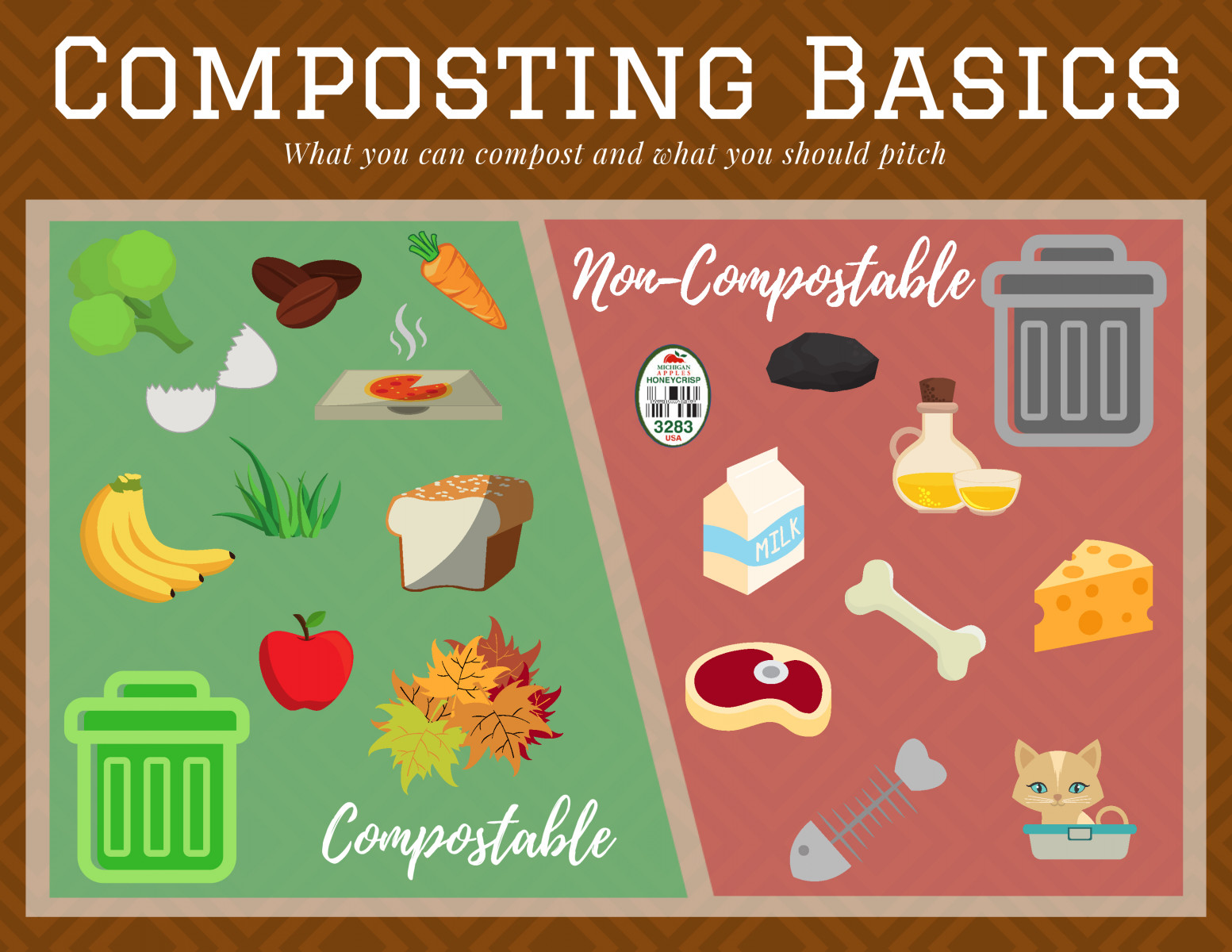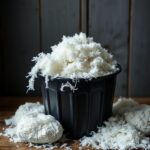What Food Cannot Go in Compost? A Comprehensive Guide to Composting Mistakes

Composting is a sustainable practice that reduces waste and enriches soil, but not all food items belong in your compost pile. Knowing what to avoid is crucial for maintaining a healthy composting environment. Certain foods can attract pests, create unpleasant odors, or disrupt the natural decomposition process. This comprehensive guide delves into the foods that should never be composted, offering insight into common misconceptions and mistakes. By understanding these rules, you can enhance your composting efforts, create nutrient-dense soil, and contribute to a greener planet. Let's explore the items that could jeopardize your compost's success.
Foods That Should Not Be Placed in Compost
When considering what foods to add to your compost, it is crucial to avoid certain items that can disrupt the composting process or attract unwanted pests. Foods that are particularly problematic include dairy products such as milk, cheese, and butter, as they can create foul odors and attract rodents. Additionally, foods with high fat content, like oils and meats, should also be excluded since they decompose slowly and can lead to microbial imbalances. Similarly, cooked foods and processed snacks may contain ingredients and additives that do not break down well and can cause contamination. Furthermore, citrus fruits and onions should be added sparingly, as they can disrupt the microbial ecosystem necessary for effective composting.
Dairy Products
Dairy products are best left out of the compost pile because they can produce strong odors and attract animals. The presence of milk, cheese, and butter can lead to an increased risk of pest infestations, including rodents and insects, making your compost pile much less pleasant to manage.
Meat and Fish
Including meat and fish in compost is not advisable, as these protein sources decompose slowly and can emit unpleasant smells. Furthermore, the decomposition of these items can attract scavengers such as dogs or raccoons, creating chaos in your composting area.
Greasy Foods
Oily or greasy foods, such as fried snacks and foods cooked in abundant oil, should be avoided in compost bins. The high fat content can lead to anaerobic conditions, which create foul odors and promote the growth of unhealthy bacteria, making it counterproductive for effective composting.
Cooked and Processed Foods
While raw fruits and vegetables can benefit compost, cooked and processed foods often contain additives, preservatives, or high levels of sugar and salt that can hinder the composting process. These ingredients do not break down as efficiently and can create undesirable conditions in the compost.
See also:
Citrus and Onion Peels
Although citrus fruit peels and onion skins can theoretically be composted, it is advisable to do so sparingly. They can contribute excess acidity to the compost and may harm the beneficial microorganisms that facilitate the breakdown of organic matter, thus affecting the overall health and effectiveness of your compost pile.
| Food Type | Reason for Exclusion |
|---|---|
| Dairy Products | Odors and pests |
| Meat and Fish | Slow decomposition and attracts scavengers |
| Greasy Foods | Creates anaerobic conditions |
| Cooked Foods | Additives and preservatives |
| Citrus and Onions | High acidity and harmful to microorganisms |
What should be avoided in compost?

Composting is a great way to recycle organic materials and reduce waste, but not all materials are suitable for composting. Certain items can create problems in the composting process, affect the quality of the compost, or even pose health risks. Understanding what should be avoided is crucial for successful composting.
Avoid Animal Products
Using animal products like meat, dairy, and bones in compost can lead to a host of problems. These materials can attract pests, such as rodents and flies, and they can also produce unpleasant odors during decomposition. In addition, animal products can introduce pathogens and diseases that could contaminate the compost.
- Meat: Attracts pests and creates odors.
- Dairy: Can cause foul smells and attract unwanted animals.
- Bones: Decompose slowly and can pose a risk of attracting scavengers.
Avoid Processed Foods
Processed foods are another category to steer clear of in compost. They often contain preservatives, additives, and other non-biodegradable substances that do not break down properly. This can lead to a poor-quality compost and hinder the natural decomposition process.
- Sugary snacks: Can attract pests and create a sticky environment.
- Oily foods: May lead to rancid smells and attract vermin.
- Canned goods: Often contain preservatives that are harmful to beneficial microbes.
Avoid Pet Waste
While it may seem like a natural addition to the compost pile, pet waste can introduce harmful pathogens and parasites that could affect humans and plants alike. Additionally, the chemicals used in pet food can also have negative effects on the composting process.
See also:
- Dog feces: Can contain parasites like roundworms.
- Cat litter: May contain harmful chemicals and pathogens.
- Small animal waste: Can pose similar risks as cat and dog waste.
Avoid Non-Biodegradable Materials
Items that are not biodegradable should never be included in your compost. This includes plastics, metals, and glass, which do not decompose and can contaminate the compost. Such materials can also hinder airflow and drainage in the compost pile.
- Plastics: Remain in the environment indefinitely.
- Metals: Can rust but do not break down.
- Glass: Sharp shards can pose a danger during handling.
Avoid Weeds and Diseased Plants
When composting yard waste, it's essential to avoid adding weeds and plants infected with diseases. Weeds can survive the composting process and re-emerge in your garden. Diseased plants may transfer pathogens to healthy plants, compromising your garden's health.
- Weeds: Many can thrive even after composting.
- Diseased plants: Can harbor pathogens that spread.
- Invasive species: Can proliferate if not fully decomposed.
Questions from Our Readers
What types of meat should not be composted?
Composting meat is generally discouraged as it can attract pests and create unpleasant odors. Instead, focus on composting plant-based materials like fruits and vegetables.
Can dairy products be added to compost?
It's best to avoid adding dairy products like milk, cheese, and butter to your compost pile since they can lead to odor issues and attract unwanted animals.
Are citrus peels acceptable for composting?
While you can compost citrus peels, it’s important to do so in moderation as their high acidic content can harm the composting process and affect the balance of microorganisms.
Should I compost cooked foods?
Generally, it’s advisable to avoid composting cooked foods because they can contain oils, spices, and other additives that disrupt the composting process and attract pests.
See also:

If you want to read more articles like What Food Cannot Go in Compost? A Comprehensive Guide to Composting Mistakes, we recommend you check out our Compost category.
Leave a Reply
Related Articles